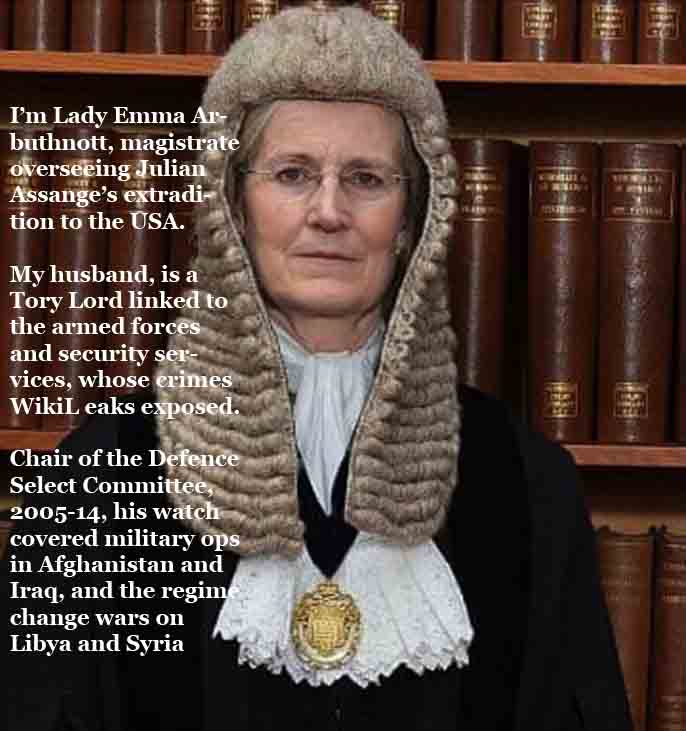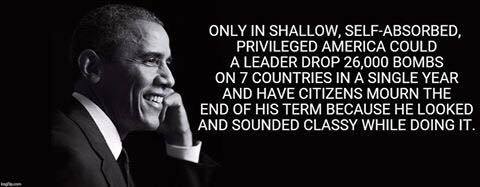Guardian writer Duncan Campbell yesterday penned a decent but predictably timid and flawed response to the day’s High Court ruling. Here, with my comments, is what he wrote.
The case against Julian Assange has been a cruel folly. His right to appeal is a small step towards justice
Almost obscured on its perch outside the Royal Courts of Justice, amid the crush of camera crews and vociferous supporters of Julian Assange, was the statue of Samuel Johnson, a man who also knew the importance of getting information out to as wide an audience as possible. “To keep your secret is wisdom,” is one of his better known observations, “but to expect others to keep it is folly.”
The relevance of this eludes me, but Mr Campbell gets to the point with his second paragraph.
The high court decision to grant leave to appeal to Assange was a further reminder to the US authorities and their apologists in Britain of their folly in seeking to extradite and jail a man whose main offence is publishing the shameful secrets of the US government and its armed forces. In a just world, the court would have brought this whole absurd legal process to an end there and then …
He does not spell out why – “in a just world” – the case should have been kicked out so let me fill in the gap, if only partially. Reasons include but are not confined to:
- The well documented plot to murder Julian in London. Its authors included the one time Sunday School teacher who headed up the CIA at the time.
- CIA spying on him at the Ecuador Embassy (with neither bathroom nor meetings with his lawyers spared)
- Key witness Sigurdur Ingi Thordarson having lied on oath
- The judge at the original Hearing being Vanessa Baraitser. She gave short shrift to all the reasons listed here, then denied extradition on ground of Julian’s ‘mental fragility’. That led suspicious souls like me to see the ruling as a show of John Bull independence while paving the way for the inevitable – and inevitably successful – US appeal. And to whom did Baraitser answer?

- The UK’s extradition treaty with the US (lopsided in favour of the latter) has long been deemed ambiguous on politically driven extraditions, and the updated version agreed by Home Secretary David Blunkett in the “war on terror” climate of 2003 further eroded the feeble safeguards it had provided. But two arguments made by the USA to deny that this is a political extradition to wreak vengeance on Julian – and more importantly to put the fear of God into all who would reveal its criminality – are risible:
-
- “Assange’s revelations jeopardised the lives of the American military and those on their payroll.” Untrue, and admitted as such by the prosecution in the US trial of Bradley (now Chelsea) Manning. Since it still has traction among the gullible, we should add that responsibility for “Cablegate”, when hundreds of thousands of unredacted US Embassy Cables were released online against Julian’s will, lies with two of Mr Campbell’s colleagues, David Leigh and Luke Harding. 1 For more on that disgraceful pair and a no less disgraceful Guardian, see both the Wikileaks response and that of Jonathan Cook.
- The Obama Administration backed off its initial intent to prosecute Julian for fear of eroding US ability to denounce the repression of journalists in countries it deems enemies. First Trump, and then Biden, removed this stumbling block by denying his status as a journalist. But journalism is not law or medicine. Its practice requires no licence. A journalist is one who does journalism. Simples.
… but the fact that an appeal has been granted is both a defeat for the US and renewed cause for hope for Assange.
Hmm. For a less complacent assessment, see Chris Hedges: The Slow-Motion Execution of Julian Assange.
The large crowds inside and outside the court, the sympathetic toots of support from passing tourist buses and cars, and the presence of journalists from all over the world was a reminder of how the case has taken on an international impetus unthinkable a few years ago. One large poster outside the nearest underground station to the court spelled out another message: “Publishing is not a crime. War crimes are.” And a neighbouring poster printed the statements of solid support for Assange from such bodies as the International Federation of Journalists, PEN, Reporters Without Borders and Amnesty International.
I was unable to attend myself, as I had the February Hearing. News of the ruling reached me when – having flown into Gatwick from Oslo to take train, underground and bus to the van I’d left for eighteen days on a North London street – I checked the phone during a three hour wait for the removal of a wheel clamp.
My parking was legit. Inadvertently failing to pay vehicle tax was not. But it’s hard to bewail a £260 removal charge – with £160 refundable if tax sitch rectified within 15 days – when another man has spent so many years deprived of his liberty by the forces of unbridled evil.
The latest hearing came after the US was asked to provide assurances that Assange would not be subject to the death penalty if extradited and would be entitled to use the first-amendment right to free speech as part of his defence, although he is not an American citizen. While the US accepted that there would be no attempt to execute Assange – who knows, possibly because it has had so many problems recently with bungled lethal injections – it failed to provide any such undertaking on the second ground. As Assange’s legal team of Edward Fitzgerald KC and Mark Summers KC pointed out, this was a “patently inadequate” assurance.
Assurance that punishment will not exceed 199 years in a US jail should do the trick – though there exist no mechanisms within the Treaty to see to it that an ‘exceptionalist nation’ which recognises no international constraint keeps its word.
There have been hints that finally the US is realising the hypocrisy of calling on Russia to release two American journalists held by them at the same time as trying to hoist Assange out of Britain for punishment in the US for the similar offence of publishing information. Last month at the White House correspondents’ dinner in Washington, Joe Biden told his audience, to polite applause: “Journalism is clearly not a crime. Not here, not there, not anywhere in the world.” And last year on World Press Freedom Day, he said, “Courageous journalists around the world have shown time and again that they will not be silenced or intimidated … the United States sees them and stands with them.” Really?
This takes us back to Barack Obama – never forget that psychopathy is a sina qua non both of Oval Office entry, and securing the big money backing to reach its threshold …

– and the realpolitik of his having called off the soon to be renewed manhunt on Julian.
Assange has now spent five years in Belmarsh prison after the seven years in increasingly difficult conditions in the Ecuadorian embassy where he had sought asylum. Anyone who has any doubts about the validity of the case on his behalf should read The Trial of Julian Assange by Nils Melzer, the former UN special rapporteur on torture. Melzer was originally disinclined to look at Assange’s case but he goes into deep, forensic detail about all the allegations made against him. “Even in the darkest room, the light of a single candle is enough to enable everyone to see,” is how he concludes. “Julian Assange has lit such a candle with his work.”
Agreed. Indeed, not only is Julian Assange a journalist. He is on any quantitative as well as qualitative reckoning the greatest journalist of all time.
Once again, Assange was too unwell to attend Monday’s hearing, but his wife and father were both present. One of the many absurdities has been that he is being held in one of our highest security prisons when our whole jail system is bursting at its seams. He could quite easily be granted bail under whatever conditions deemed necessary so that he could be with his wife and two children. This should be a priority for him now.
Agreed.
And so this long saga continues. Few come out of it well. Both the British and American governments have shown themselves to be unconcerned about the press freedom they so glibly claim to support, if any of it shows them up in an unfavourable light. It was Priti Patel, when home secretary, who gave the go-ahead for extradition in the first place and none of her deferential successors have given any indication they would have the guts to challenge the US, as Theresa May did when she, as home secretary, refused to allow the extradition of Gary McKinnon in 2012. Only a handful of MPs have had the decency to speak up for Assange and he has never had the support from the media that should have been forthcoming. The judicial system could also easily have kicked this case out years ago, but there has been a spinelessness on display here too.
Here we get to why I’m surprised, but only mildly – see Julian, Guardian & Law of Volitionality – that the Guardian ran Mr Campbell’s piece at all, tepid though it is. GMG led the way – see Dear Guardian Media Group – in vilifying this brave man to help his natural support base in the liberal intelligentsia wash their hands of him. In droves and with clear if deluded conscience, any doubt as to his unworthiness erased from the ‘woke’ mind by the character assassinations of the world’s leading liberal paper. Having seen this play out among credulous friends, I will never forgive the Guardian.
This whole prosecution and extradition attempt has been a folly – a cruel folly. The decision to allow the appeal is but one small step to correct it.
* * *
- Harding was also responsible for the lie – for which neither he nor Guardian Editor in Chief Katherine Viner, who backed him with gusto and glee, have offered evidence or retraction, and which defies basic logic – that Julian met Trump fixer and soon to be convicted felon Paul Manafort at the Ecuador Embassy.
